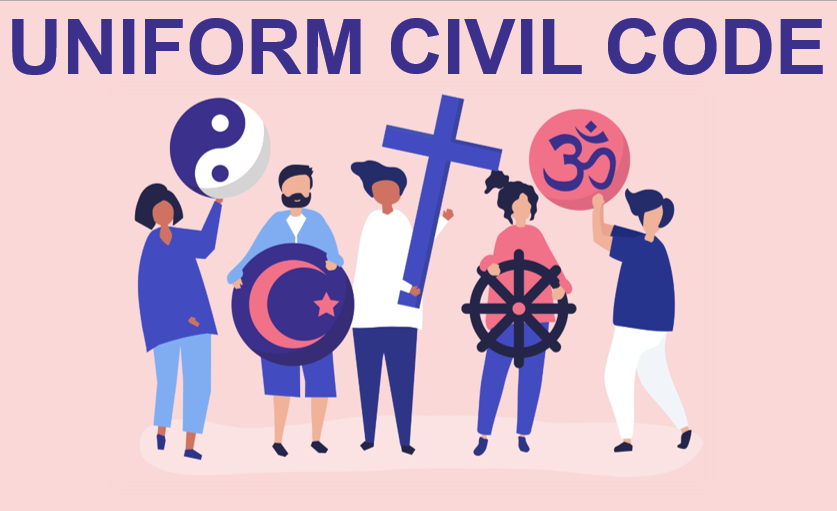Published On: 1st July, 2024
Introduction
The conflict in Gaza has resulted in profound and widespread violations of women’s rights, particularly concerning their health and safety. As the war on Gaza reached its six-month mark, the situation has escalated into what can only be described as a humanitarian catastrophe, with women bearing the brunt of the suffering. According to estimates by UN Women, more than 10,000 women have been killed to date, among them an estimated 6,000 mothers who left behind approximately 19,000 orphaned children. These staggering figures underscore the human cost of the conflict and highlight the specific vulnerabilities faced by women in war-torn regions.
Surviving women in Gaza have been subjected to displacement, widowhood, and the harsh realities of starvation. More than one million women and girls in Gaza are living in conditions that lack the basic necessities of life. They have almost no access to food, safe water, or sanitation facilities, including latrines, washrooms, or sanitary pads. This dire situation has led to the proliferation of diseases in inhumane living conditions.
The conflict has disrupted every aspect of daily life for women in Gaza, stripping them of their homes, families, and basic human dignity. The destruction of healthcare facilities and the severe shortage of medical supplies have made it nearly impossible for women to receive adequate healthcare, particularly maternal and reproductive health services. Pregnant women and those with chronic health conditions are at heightened risk, with many unable to access the necessary medical care to ensure their well-being.
In addition to health concerns, the safety of women in Gaza is under constant threat. IDF actions have targeted residential areas and civilian infrastructure, resulting in significant civilian deaths and injuries. The targeting of these areas violates the principle of civilian protection under international humanitarian law, placing the lives of women and children at grave risk. The widespread threat of physical harm and the psychological trauma associated with living in a conflict zone have had profound effects on the mental health and overall well-being of women in Gaza.
The increase in gender-based violence (GBV) during the conflict further compounds the suffering of women. Reports indicate a rise in domestic violence, sexual harassment, and exploitation, driven by the breakdown of social structures and the pervasive state of insecurity. The lack of effective legal and social support mechanisms leaves survivors of GBV without recourse or protection, perpetuating a cycle of violence and abuse.
This paper examines how Israel’s actions during the war have led to severe breaches of international law, focusing on the specific violations against women and the legal implications of these actions. It explores the relevant frameworks of International Humanitarian Law (IHL) and International Human Rights Law (IHRL), which provide protection for civilians, including women, during armed conflicts. This analysis aims to highlight the legal responsibilities of Israel under these frameworks and the necessity for accountability and justice for the affected women in Gaza.
Through a comprehensive review of the legal standards and the documented violations, this paper seeks to shed light on the urgent need for international intervention to protect the rights of women in Gaza. Upholding international legal standards is not only crucial for addressing the immediate humanitarian crisis but also for ensuring long-term stability and respect for human rights in conflict-affected areas. The international community’s role in enforcing these standards and supporting the victims of these violations is critical in the pursuit of justice and the restoration of human dignity for the women of Gaza.
Impact on Women’s Health
Healthcare Access: Israel’s blockade and military actions have severely restricted access to healthcare in Gaza, violating the right to health as protected under international law. Hospitals and clinics face shortages of essential supplies and medications, exacerbating the already dire health situation for women. Gaza, with a population of 2.3 million Palestinians, has suffered the consequences of the attack on its health systems over the last five months. Since October 8th, IDF has systematically degraded Gaza’s health infrastructure, limiting access to healthcare for the sick, injured, and displaced population. Only a fraction of hospitals and health centers remain operational, and those face challenges such as shortages of medical staff, supplies, and electricity. The assaults have also resulted in significant casualties among healthcare personnel and civilians seeking refuge in medical facilities.[1]
Maternal and Reproductive Health: Pregnant women in Gaza face immense challenges in accessing prenatal and postnatal care due to the destruction of medical facilities and shortages of medical supplies. The lack of adequate maternal healthcare violates women’s rights under international human rights instruments. The bombardments, damaged or non-functioning health facilities, massive levels of displacement, collapsing water and electricity supplies as well as restricted access to food and medicines, are severely disrupting maternal, newborn, and child health services. There are an estimated 50,000 pregnant women in Gaza, with more than 180 giving birth every day. Fifteen percent of them are likely to experience pregnancy or birth-related complications and need additional medical care.[2]
Chronic Conditions: Women with chronic health conditions struggle to obtain necessary treatments and medications, further compromising their health and well-being. Israel’s restrictions on the importation of medical supplies contribute to the worsening health conditions of women with chronic illnesses. Throughout the blockade, Gaza’s healthcare system has been beset by a lack of supplies and equipment. People with medical illnesses that cannot be treated in Gaza are now compelled to seek permits to leave the enclave in order to obtain treatment in either Palestinian hospitals in the West Bank or overseas hospitals, as a result of Israel closing the crossings. The Israeli authorities frequently delay or refuse these permits; some Gazans have died while waiting to obtain permits to leave the territory for medical treatment elsewhere. World Health Organization (WHO) trucks of medical equipment bound for Gazan hospitals have repeatedly been turned away, without explanation, by Israeli border officials.[3]
Impact on Women’s Safety
Physical Safety: Israeli military actions, including airstrikes and shelling, pose a constant threat to the physical safety of women in Gaza. The targeting of residential areas and civilian infrastructure violates the principle of civilian protection under international humanitarian law, endangering the lives of women and children. Under the Geneva Conventions, particularly the Fourth Geneva Convention relative to the Protection of Civilian Persons in Time of War, Article 27 ensures the protection of civilians, including women, from acts of violence. The principles of distinction and proportionality, fundamental to IHL, require that combatants distinguish between military targets and civilians and avoid attacks that would cause excessive civilian harm relative to the anticipated military advantage.[4]The International Covenant on Civil and Political Rights (ICCPR) provides that every human being has the inherent right to life (Article 6), which must be protected by law. Deprivation of life involves a deliberate or otherwise foreseeable and preventable life-terminating harm or injury, caused by an act or omission. It goes beyond injury to bodily or mental integrity or threat, which is prohibited by Article 9, paragraph 1.4.[5]
Gender-Based Violence (GBV): The conflict has led to a rise in GBV against women in Gaza, including domestic violence, sexual harassment, and exploitation. The breakdown of social structures and the stress of living in a war zone contribute to increased instances of GBV, further exacerbated by Israel’s actions during the conflict. The Convention on the Elimination of All Forms of Discrimination Against Women (CEDAW) obligates states to protect women from violence and ensure their safety (Article 2). General Recommendation No. 30 on women in conflict prevention, conflict, and post-conflict situations by the CEDAW Committee explicitly addresses the need to protect women from gender-based violence during armed conflict.[6]
Legal Violations by Israel
International Humanitarian Law (IHL): Israel’s targeting of civilian infrastructure and disproportionate use of force during the conflict violate key principles of IHL, including the principle of distinction and the principle of proportionality. The indiscriminate nature of Israel’s military operations has resulted in civilian casualties, including women, in clear contravention of IHL.
International Human Rights Law (IHRL): Israel’s blockade of Gaza and restrictions on the movement of people and goods violate women’s rights to health, safety, and non-discrimination under IHRL. The denial of access to essential healthcare services and the exacerbation of humanitarian conditions constitute violations of women’s human rights.
Conclusion
Israel’s actions during the war in Gaza have resulted in severe and multifaceted violations of women’s rights, particularly regarding their health and safety. The comprehensive impact of these actions is best understood through the lens of International Humanitarian Law (IHL) and International Human Rights Law (IHRL), both of which provide frameworks for the protection of civilians, including women, in conflict zones.
The blockade imposed by Israel has significantly restricted the movement of people and goods into Gaza, leading to a severe shortage of essential medical supplies, food, and other necessities. This blockade has not only affected the healthcare infrastructure but has also led to a humanitarian crisis, disproportionately affecting women. Under IHL, such actions could be seen as a form of collective punishment, which is prohibited under Article 33 of the Fourth Geneva Convention.[7] The blockade has obstructed access to healthcare, resulting in increased maternal mortality rates and exacerbating chronic health conditions among women, thereby violating their right to health as guaranteed under Article 12 of the International Covenant on Economic, Social, and Cultural Rights (ICESCR).[8]
The IDF, characterized by airstrikes and shelling in densely populated civilian areas, has resulted in significant civilian casualties, including women and children. These actions contravene the principles of distinction and proportionality enshrined in IHL. The principle of distinction, as stipulated in Article 48 of Additional Protocol I to the Geneva Conventions, mandates that parties to a conflict must at all times distinguish between civilian objects and military objectives. The principle of proportionality, outlined in Article 51(5)(b) of the same protocol, prohibits attacks that may cause incidental loss of civilian life or injury to civilians that would be excessive in relation to the concrete and direct military advantage anticipated. The indiscriminate nature of these attacks has led to substantial loss of life and injury, which constitutes a clear violation of these principles.
Furthermore, the psychological trauma and physical injuries sustained by women due to these military actions are profound. The targeting of residential buildings and critical civilian infrastructure, such as hospitals and schools, violates the protections afforded to civilians under IHL and exacerbates the humanitarian plight of women in Gaza. These actions not only contravene the Geneva Conventions but also the Rome Statute of the International Criminal Court, which classifies intentionally directing attacks against civilian populations as a war crime.
The restrictions on movement and the resultant humanitarian crisis have also led to an increase in gender-based violence (GBV) against women in Gaza. The breakdown of social structures, economic hardship, and the pervasive state of insecurity have made women more vulnerable to domestic violence, sexual harassment, and exploitation. The Convention on the Elimination of All Forms of Discrimination Against Women (CEDAW) obligates states to take all appropriate measures to eliminate discrimination against women and ensure their protection against violence. Israel’s actions, by exacerbating conditions that lead to increased GBV, violate these international obligations.
In light of these severe violations, upholding international legal standards is essential for holding Israel accountable and ensuring the protection of women’s rights in Gaza. The international community, including states and intergovernmental organizations, must take concerted action to enforce compliance with IHL and IHRL. This includes leveraging diplomatic pressure, initiating independent investigations into alleged violations, and pursuing accountability through international legal mechanisms such as the International Criminal Court (ICC).
The protection of women’s rights in conflict-affected areas requires a commitment to the principles of justice and accountability. It is imperative that the international community not only condemns these violations but also takes proactive steps to prevent their recurrence. By adhering to the established legal frameworks of IHL and IHRL, and ensuring their rigorous enforcement, the international community can contribute to safeguarding the health and safety of women in Gaza and upholding the rule of law in times of conflict.
Reference(s):
[1] Anera, Health Systems Under Attack in Gaza, March 11, 2024, [link]
[2] Women and newborns bearing the brunt of the conflict in Gaza, UN agencies warn, 3 November 2023,(link)
[3] Amnesty International, Suffocating Gaza – the Israeli blockade’s effects on Palestinians, June 1, 2010, [link]
[4] International Committee of the Red Cross (ICRC), “The Geneva Conventions of 1949 and their Additional Protocols,” link)
[5] General Comment 35, para. 9 (link)
[6] Convention on the Elimination of All Forms of Discrimination against Women, article 2, 3 September 1981, (link)
[7] ICRC’s International Humanitarian Law Databases, article 33, (link)
[8] International Covenant on Economic, Social and Cultural Rights, 16 December 1966, (link)




